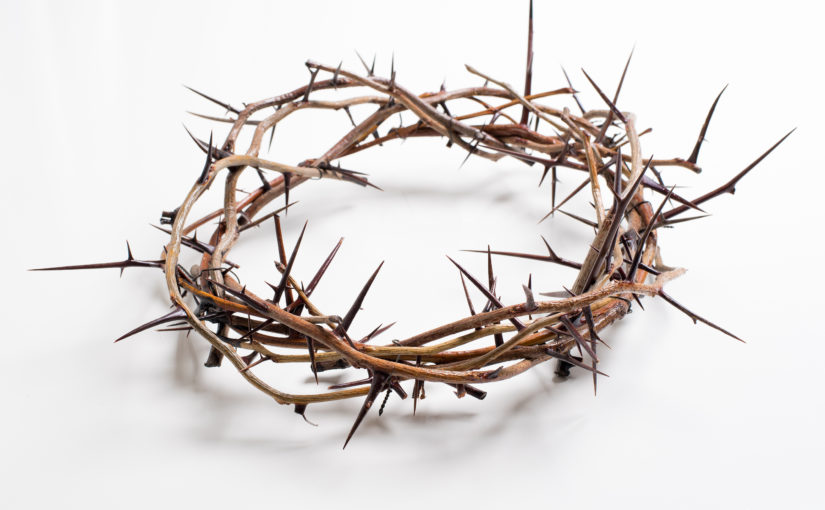Totay’s post is authored by Freddy Armstrong.
Genesis 19-20, Psalm 1, Mark7
Genesis 19 is about Lot and his family leaving Sodom. When he was warned by two angels, he tried to tell his extended family, but they didn’t take him seriously. Lot, his wife, and his daughters flee into the nearby town of Zoar, while God rains fire on the city of Sodom. While they flee, Lot’s wife looks back on the city, disobeying God’s command, and turns into a Pillar of salt. The daughters, thinking the world was over, got Lot drunk, and were impregnated by him to try and preserve their bloodline.
We must not question Divine Judgment. God has laid a plan for us, it is on us to stay obedient. Even if it’s not clear, there are cascading effects each time we disobey the Lord’s plan. Wickedness has consequences. Even the smallest thing (all Lot’s wife did was LOOK BACK) can have terrible effects. Our bad choices may not seem consequential in the moment, but each time we disobey, there are consequences. In Romans 19:20, Paul writes: “But who are you, a human being, to talk back to God?”
Psalm 1 is a comparison between the Righteous and the Wicked. Reading this, you can draw parallels between those we deem righteous, and those we deem wicked in today’s world. I’ll start with the wicked. Today we live in a world where the wicked have become more present than ever, especially here in the United States. Music artists are doing clear satanic rituals in their concerts. Sexual degeneracy is at an all time high. Less people are having children.
What about the Righteous? They’re fleeing the world. All major cities in the United States have seen a sharp decline in Christianity in the last 20 years, while atheism and Islam are growing. Even in our own communities, the mainline protestant churches have been hijacked by secular humanists. Since 2001, historic protestant churches have experienced deep declines in attendance, while evangelical non-denominational churches have seen tremendous growth. As soon as liberalism started to enter the church, many theologically conservative Christians fled. Now we’re left with local historical mainline churches hanging rainbow flags, and even denying the divinity of Christ. Yes, this Psalm tells us not to walk in the path of the wicked. But it did not
tell us to HIDE from the wicked. We must stand strong in the faith when surrounded by the wicked, and they will begin to follow. Our retreatest mindset is not correct.
“That person is like a tree planted by streams of water,
which yields its fruit in season
and whose leaf does not wither—
whatever they do prospers.”
Ask yourself: “Where do I sit?” Are you somebody who walks in the step of the wicked? This can come in many forms. Like: following their ideologies (supporting subversive culture), attending their ceremonies (concerts, festivals, any sort of revelry), or changing your code as soon as you’re in a room with secularists. As a young man, I’ve been guilty of each of these. If you find yourself in the step of the wicked, take a step to the right, carry your cross, and call on the Lord’s strength to help you forge a new path. Thanks to Christ, our fruits are great. We’re not an exclusive club. We’re not persecuted like the early church. When the Romans persecuted Christians, they didn’t flee.
Note: There’s nothing wrong with Non-Denominational churches. I wasn’t even alive for this stuff. We should definitely try and take back the culture, and the historic protestant churches, though. Also, I don’t think we should try and form our churches to look more like secular culture. Young men and women are searching for tradition.
In Mark 7,The Pharisees confront Jesus after they criticize Jesus and his disciples for not following certain ceremonial washing rituals. This is where Jesus declares all food to be clean. The Pharisees condemn Jesus for not washing themselves before eating. Jesus says: “Nothing outside a person can defile them by going into them. Rather, it is what comes out of a person that defiles them”
Health is a big focus of mine. Eating the correct foods, controlling what goes into my body to make me stronger. But we must remember that this isn’t our main focus. We must control our spiritual food, in order to control what comes out of us. If we are consuming what comes from the wicked, (like certain secular media, ideas or traditions) we may find ourselves reciprocating it. It’s not all about what goes into our stomachs, or our physical health markers, it’s about the spiritual energy we surround ourselves with. We should feed ourselves spiritually with prayer and communion, so that our hearts can show Christ’s love.









